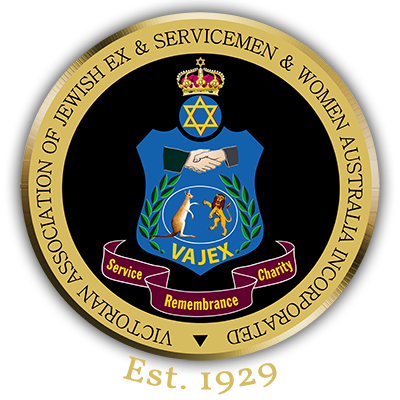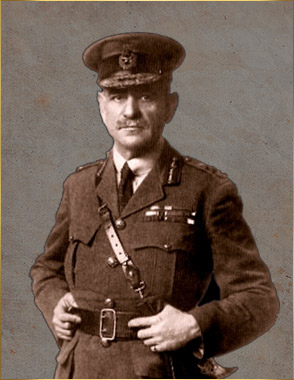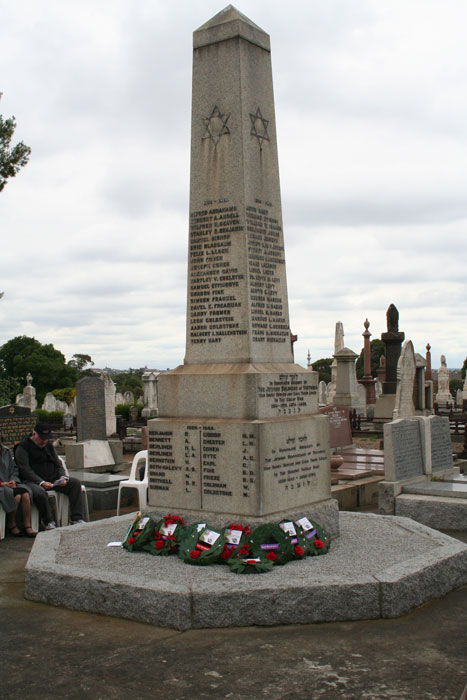Victorian Association of Jewish Ex & Servicemen & Women Australia Incorporated
Founding Member General Sir John Monash GCMG KCB VD
Mos
Surname
Mos
First names
Israel (Zygmunt)
Rank
Sergeant
Service No.
2764
Date of Death
11 May 2019
Hebrew Date
7 Iyyar 5779
Hebrew Date
ז׳ בְּאִיָּר תשע״ט
Age at Death
96
How Died
Where Died
Melbourne, Victoria, Australia
Cemetery
MCK Cemetery, Springvale, Victoria, Australia
Service Details
Poland - CCCR
Served
Occupation
Age at Enlistment
Place of Enlistment
Locality on Enlistment
Religion
Jewish
Gender
Male
Date of Enlistment
1942
Date of Discharge
1946
Country of Enlistment
Poland
Notes
My name is Israel Abram Mosieznicki and I was born on the 17th April 1923 in the Polish city of Suwalki, which is close to Bialystok. Due to anti-Semitic discrimination, I changed my name to Zygmunt Mos. In December 1939 the Germans occupied Poland. They didn’t allow Jewish people to stay in line for food and my father ignored this rule and was taken away by a German soldier and shot. After two months, all Jews were evacuated and sent by train to concentration camps. During a brief train stop near a forest on this journey, my friends and I managed to escape through a slightly opened door. I was then 16 years old as were my friends. It was from then on that my struggle for survival commenced. Whilst hiding out in the forest I joined the Polish resistance. After about six months we met up with the Russian soldiers who informed me that due to my age, I could not join the Russian army. Instead, I had to be educated in a Russian cadet school. I found myself quite fortunate to have this rare opportunity, as not many were privileged to attend a cadet school. The school was in the Russian city of Sverdlovsk. I learned many skills there which enabled me to become a tank commander with the rank of sergeant. In 1943 I completed my studies in the cadet school and joined the Russian army. By that time we were advancing across Russian territory towards the Polish border under the command of Marshal Zukov. We participated in many dangerous battles against the German forces. By the end of 1943, all Polish-born members of the Russian army were transferred to the newly formed Polish army after its formation in the Ukraine. I was then a sergeant serving in the 4th Division. In March 1944 we were advancing towards the town of Lublin in Poland. Some 20 kms from this town, we came across Majdanek concentration camp. Entering this camp, we witnessed some horrendous sights; people lying on the ground, most of them dead. I tried to talk to one of the victims but he didn’t reply. He was so weak that he couldn’t talk. I couldn’t believe my own eyes that such atrocities happened in the world. Most of these prisoners were Jewish but there were many Russians and Gypsies; and many children. The Russian army provided some assistance in the way of nurses, who offered their help. We could not stay there too long as we were under orders to move on. We advanced towards Lublin and, after a two-week break, moved on to Warsaw and Berlin. It was Christmas 1944 and our Division came to the Wisla (Vistula River) overlooking Warsaw. On the other side of the frozen river were the Germans. Our commander called for two volunteers to cross the river and bring back live German soldiers for the purpose of obtaining information on the strength of their forces and strategies. Due to my knowledge of the German language I volunteered with a friend. We were both dressed in German uniforms and successfully crossed the river bringing back two captured enemy soldiers, one of them a sergeant. The darkness proved to be our best ally and as they Germans were unfamiliar with that territory, added to our success. We took them to our headquarters and obtained a lot of valuable information from them. After this operation, I was awarded two medals for bravery. This was the most difficult and unimaginable experience throughout the entire war. In January 1945 only the 4th Polish Division managed to cross the Vistula River without much enemy resistance. However, when we crossed the German border, we experienced some heavy fighting but we came through it. On the 3rd of May 1945 our Formation became the first to reach Berlin. The war was practically over except for some resistance from German snipers. We stayed in Berlin until the 9th of May – the day the Germans surrendered to the Russian Army. This was the happiest day of my life.

 John Monash (Monasch) born
in Melbourne, Australia on 27 June 1865, the son of
German Polish Jewish migrants, can be researched in any
military history encyclopaedia or in fact by just
‘Googling’ his name on the internet. His history
and list of achievements are long and far too many to detail
in this brief summary. However, might I say that reading his
history is well worth the effort and I can assure you that
his deeds will amaze you. I have found that the deeds are
better labelled on more than one man and in more than one
lifetime.
John Monash (Monasch) born
in Melbourne, Australia on 27 June 1865, the son of
German Polish Jewish migrants, can be researched in any
military history encyclopaedia or in fact by just
‘Googling’ his name on the internet. His history
and list of achievements are long and far too many to detail
in this brief summary. However, might I say that reading his
history is well worth the effort and I can assure you that
his deeds will amaze you. I have found that the deeds are
better labelled on more than one man and in more than one
lifetime. An
announcement was made in the weeks leading up to the
Centenary of ANZAC by Judy Landau, President VAJEX Aust.
She stated that it gave her great delight to announce
that VAJEX Aust (Victorian Association of Jewish Ex
& Servicemen & Women Australia Inc) has
successfully raised the required funds to build a new
Victorian Jewish Memorial after the style of the
historic Memorial located in the Jewish section of the
Melbourne General Cemetery. After an extensive two year
process, Judy has single-handedly sought letters of
support, raised the funds, and obtained approval from
the City of Port Phillip.
An
announcement was made in the weeks leading up to the
Centenary of ANZAC by Judy Landau, President VAJEX Aust.
She stated that it gave her great delight to announce
that VAJEX Aust (Victorian Association of Jewish Ex
& Servicemen & Women Australia Inc) has
successfully raised the required funds to build a new
Victorian Jewish Memorial after the style of the
historic Memorial located in the Jewish section of the
Melbourne General Cemetery. After an extensive two year
process, Judy has single-handedly sought letters of
support, raised the funds, and obtained approval from
the City of Port Phillip.